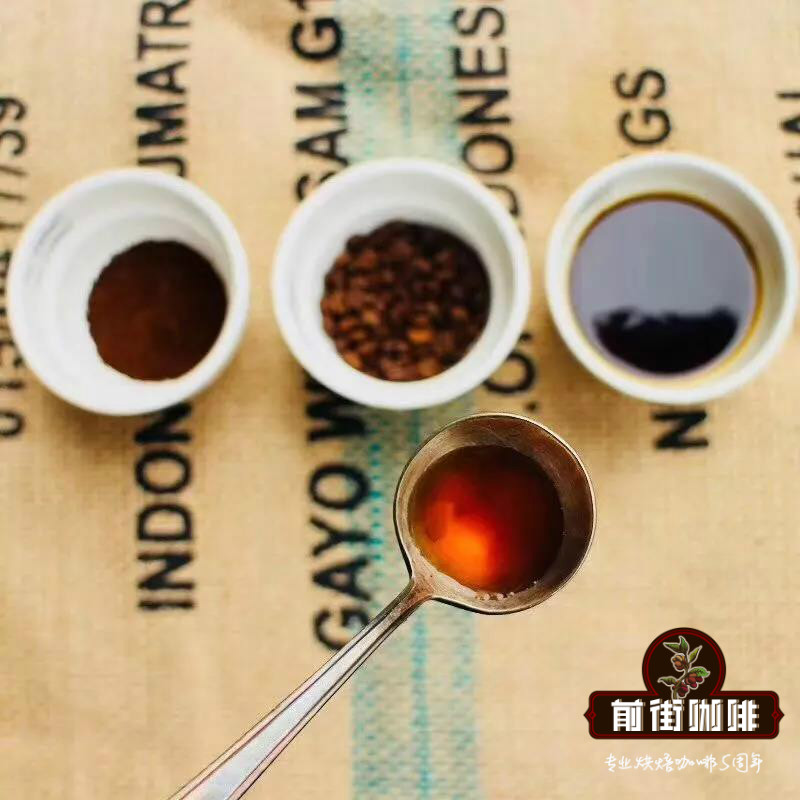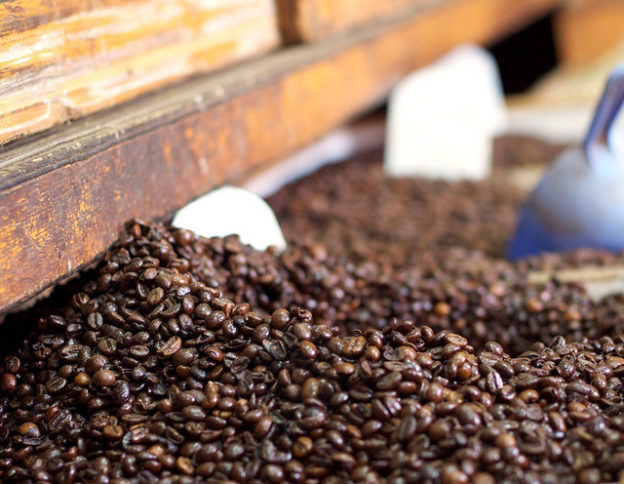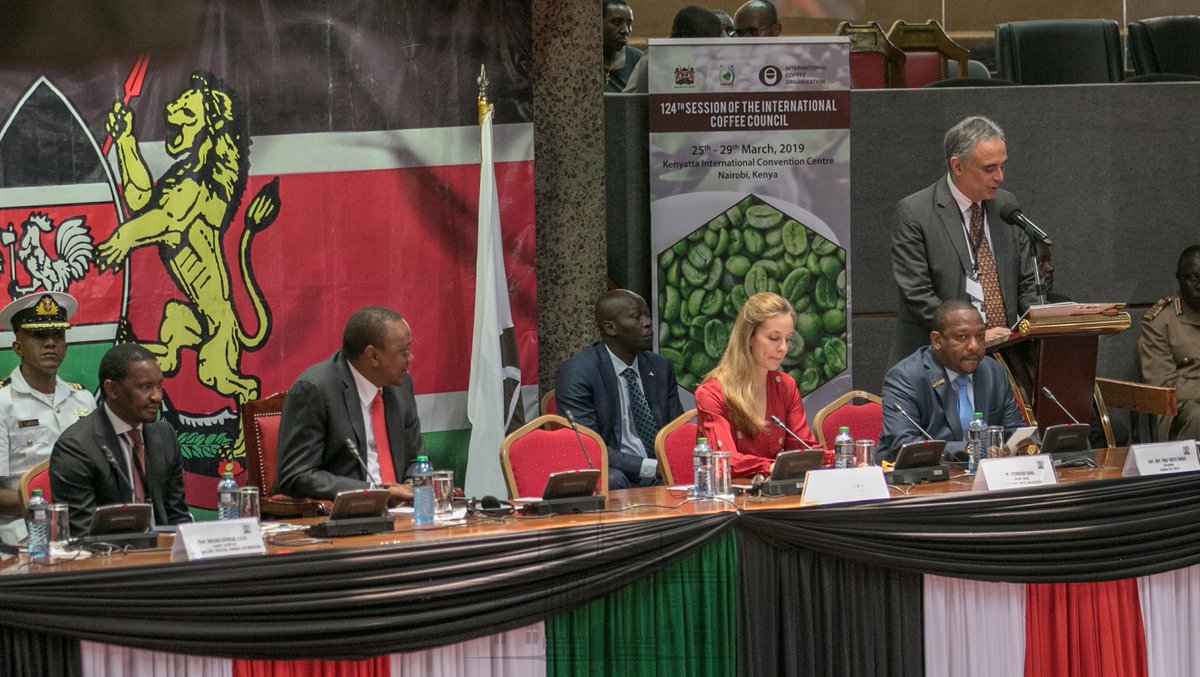The demand for low-cost coffee is high, and the export volume of Robbins Tara beans from Vietnam will increase greatly.

Professional coffee knowledge exchange More coffee bean information Please pay attention to coffee workshop (Weixin Official Accounts cafe_style)
The coffee bean varieties we generally recognize and are the most common are Arabica and Robusta/Canephora, which are known for their relative ease of growth and resistance to pests and are in stable supply, but are more pungent and bitter than Arabica beans, which are sweeter and softer in taste. However, with a surge in global demand for low-cost coffee beans and climate change affecting Arabica coffee beans, coffee market share in Southeast Asia is expected to rise significantly.

Vietnam, for example, the world's second-largest exporter of coffee beans, mainly produces low-priced Robusta coffee beans, which now account for 25% of Japan's coffee imports, approaching 27% of Arabica producing Brazil. Nikkei Asian Review analysis pointed out that Robusta is mainly used to make instant coffee in Japan, especially suitable for single or small family market, and this market has been rising rapidly recently.
Now Robusta is also breaking into the general home coffee market, as suppliers mix Robusta beans with Arabica beans and sell them at low prices. In addition, Vietnam and Robusta coffee beans have an advantage in the Japanese market because the transportation cost of Vietnam is only about half of that of Latin American Arabica coffee beans. Among Southeast Asian coffee producers, Vietnam also has a larger production base and more stable supply than Indonesia.
Climate change is also a factor, and as temperatures rise and drought intensifies, fine coffee beans will become harder to grow. Some estimates predict that about half of the coffee belt is where high-quality arabica beans are grown, a 25-degree stretch north and south of the equator that could be climate-damaged by 2050.
Vietnam is now competing for coffee bean exports, hoping to expand market share by increasing the yield of beans per tree. According to the U.S. Department of Agriculture, Vietnam's coffee production increased by 4% year-on-year in fiscal year 2018. Vietnamese coffee roasting company TNI is building a new processing plant for the King Coffee brand. Domestic demand is also growing, coffee shops are now the favorite environment for young people, and three-in-one blends of instant coffee, sugar and milk powder are most popular with workers.
Nestle has long been interested in Vietnam's coffee bean production capacity, has long started buying coffee beans from Vietnamese growers, then processing them in local facilities, sending processed beans to Nestle Group factories around the world, and now not only to expand investment in plant equipment, but also to help local coffee farmers improve bean quality and yield.
Due to the growing number of coffee drinkers in emerging and developing countries, the demand for Robusta coffee varieties used to produce low-cost instant coffee is particularly strong, so not only Vietnam covets the coffee bean market, Laos also hopes to make coffee beans one of its main export products, aiming to expand the total area of coffee farms by 70% to 130,000 hectares by 2025. Yunnan Province is an area famous for tea, and coffee beans have also been grown in recent years.
As Brazilian coffee export growth slows, Asian producers are likely to expand their share of the global coffee bean market from the current 30%. Coffee distributors in Japan believe Vietnam, the world's No. 1 supplier of Robusta beans, will be the biggest beneficiary as coffee's high-end and low-end segments become increasingly polarized.
Important Notice :
前街咖啡 FrontStreet Coffee has moved to new addredd:
FrontStreet Coffee Address: 315,Donghua East Road,GuangZhou
Tel:020 38364473
- Prev

Kenya announces coffee industry reform measures aimed at increasing production and increasing farmers' income
Professional coffee knowledge exchange more coffee bean information follow the coffee workshop (Wechat official account cafe_style) yesterday, Kenyan President Uhuru Kenyatta announced measures aimed at reforming the country's coffee industry. At the 124th International Coffee Council (ICO) meeting in Nairobi, Kenya, Kenyatta said the reforms are aimed at increasing coffee production.
- Next

Reed robot coffee vending machine moves forward to Shanghai Food and Beverage Expo
Professional coffee knowledge exchange more coffee bean information please follow the coffee workshop (Wechat official account cafe_style) Industrial Robot Taiwan innovation leading company-Reed Automation Company for the industry research and development of a variety of robot applications and production line automation upgrade, the recent "second generation intelligent robot coffee vending machine" will be on display at the Shanghai International Wine Exhibition and Food and Beverage Expo from April 1 to 4.
Related
- Workers collapse! Lucky suspects that it will introduce freshly cut fruits?!
- 1-point subsidy recipients wear thousand-yuan watches?! Local response: For low-income households
- Can lightly roasted coffee beans be used to extract espresso? How finely should you grind high-quality coffee beans to make Italian latte?
- What is the difference between the world's top rose summer coffee and Yejia Shefi? What are the flavor characteristics of Yega Shefi coffee and Panama rose summer?
- The ceremony is full! Starbucks starts to cut the ribbon at a complimentary coffee station?!
- A whole Michelin meal?! Lucky launches the new "Small Butter Apple Crispy Latte"
- Three tips for adjusting espresso on rainy days! Quickly find the right water temperature, powder, and grinding ratio for espresso!
- How much hot water does it take to brew hanging ear coffee? How does it taste best? Can hot water from the water dispenser be used to make ear drip coffee?
- What grade does Jamaica Blue Mountain No. 1 coffee belong to and how to drink it better? What is the highest grade of Blue Mountain coffee for coffee aristocrats?
- What are the flavor characteristics of the world-famous coffee Blue Mountain No. 1 Golden Mantelin? What are the characteristics of deep-roasted bitter coffee?

